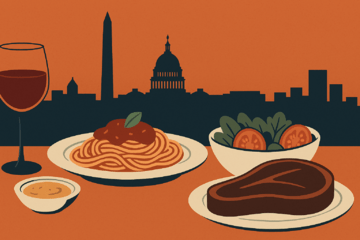
Why Supporting BIPOC Cannabis Businesses is Important
Published on 2/8/21
Over the past few years, injustice centuries in the making came to a head and a national conversation erupted into existence after the murder of George Floyd by a Minneapolis police officer. For many, this conversation about racism in America is long overdue. For others, the reality of its daily prevalence is new. For some, the idea of systematic racism is unfounded. Here at Where's Weed, we acknowledge the injustices our nation has long committed against the BIPOC community and we fully support efforts to bring a new era of inclusion, representation and equality, not just within the cannabis industry but within society as a whole.
America's War on Drugs

Beginning with The Marihuana Tax of 1937, the federal government initiated its nearly century-long control over the public's opinion on cannabis. Marijuana quickly became illegal, and in 1971, President Richard Nixon started the War on Drugs, the beginning of a decades-long cycle of propaganda, unjust imprisonment and police brutality that still rages today. When the DEA and FDA slated marijuana as a Schedule I drug, imprisonment rates began to soar. Over the last 80 years, we've been subject to the federal government's propaganda where drugs come from two primary sources: foreign countries and poor inner-cities. Essentially, drugs were a non-white problem being forced upon "innocent" White America.
Despite accounting for only 31% of America's total population, blacks and Latinos were the subjects of half of 2018's marijuana-related arrests. Black Americans use marijuana at roughly the same rate as white Americans, yet, law enforcement arrests black people 3.64 times more often for possession. Even worse, some states, like Kentucky, arrest black people 7x more for possessing marijuana than white people. The War on Drugs has not only kept too many BIPOC in the prison system (which has a large set of social and economic repercussions), but it has made it incredibly difficult for them to be part of the legal cannabis industry.
Gatekeepers of the Cannabis Industry
Lack of Diversity
Of course, there are many reasons why white people mostly own and operate the cannabis industry. One of those reasons is because that's how it's been since the beginning. There are plenty of organizations working hard to correct this disparity; however, because white people own 75% of cannabis businesses and operate 68%, creating space within cannabis for BIPOC has proven incredibly difficult.
Financial Barriers
 Unsplash
UnsplashMany legalized states have laws stipulating certain percentages of retail cannabis licenses for people of color - however, access to licenses does not guarantee the financial ability to start a successful cannabis business. The fees to begin a cannabis business add up to hundreds of thousands of dollars and the capital requirements can range up to $250,000. Because of cannabis' federally illegal status, the legal costs of starting a business also add up to tens of thousands of dollars. And then, on top of all of that, there's still the cost of setting up a brick-and-mortar retail establishment. In the end, someone needs millions of dollars to simply get licensed and open your doors to the public. Unfortunately, in a banking system that favors white America, BIPOC cannot afford that high cost. Luckily, cities and states often propose new and more robust cannabis equity systems. Hopefully, lessening the financial burden of entry so that BIPOC communities benefit from legal cannabis.
Previous Marijuana Charges
Additionally, you cannot apply for a retail cannabis license in most states if you have a misdemeanor or arrest for possession of drugs on your record. Hypocritically, this includes marijuana arrests before legalization. Because BIPOC communities have been so disproportionately affected by drug-related arrests over the last fifty years, many would-be entrepreneurs cannot enter into the industry due to racially-charged laws and law enforcement. Certain states, such as Oregon, have workarounds for specific situations, but it remains a major roadblock in allowing BIPOC an equal space within the cannabis industry.
Why BIPOC Inclusion Is Important
 Unsplash
UnsplashSince our nation's founding, American society systemically discriminated against non-white people. We built our most basic systems, from schooling to prisons, with racist regulations and protocols. For years, the government used marijuana to keep BIPOC behind bars to maintain a vicious cycle of incarceration and economic exploitation. We owe it to the people adversely affected by these systems to make right our industry and find a place for all at the table.
The legal cannabis industry is booming and white-owned, commercial operations are already dominating the market. The future of the industry and the soul of the cannabis community is on the line - we must make this a welcome, understanding, inclusive space where people with past transgressions have more opportunities and a promising, brighter future.
How to Promote BIPOC Inclusion
 BIPOCANN
BIPOCANNThere are several key ways you can help bring about more diversity within cannabis. First and foremost, make a point to buy from BIPOC-owned cannabis businesses. Check out your local dispensaries and local farms - find which businesses are BIPOC-owed, or at least allies to BIPOC businesses. Where you put your money makes a big difference, so be conscious of your decisions as a consumer.
Secondly, many organizations are working to bring more diversity into cannabis. One such organization is BIPOCann, a nonprofit dedicated to crafting a more accessible, profitable industry for BIPOC businesses within cannabis. Its key pillars are advocacy, recruitment, marketing and consulting. They work with individuals to bring about change within the industry on both micro- and macro-levels, and offer various levels of involvement and charitable giving. By supporting organizations like these, you can help shape the future of cannabis to be inclusive and fully representative of our beautifully diverse communities.
We have a chance to change the industry and provide equal access to cannabis jobs. Join the conversation and share organizations that are working for BIPOC rights within cannabis and how you think we can all help bring equality to the industry (and beyond).


















